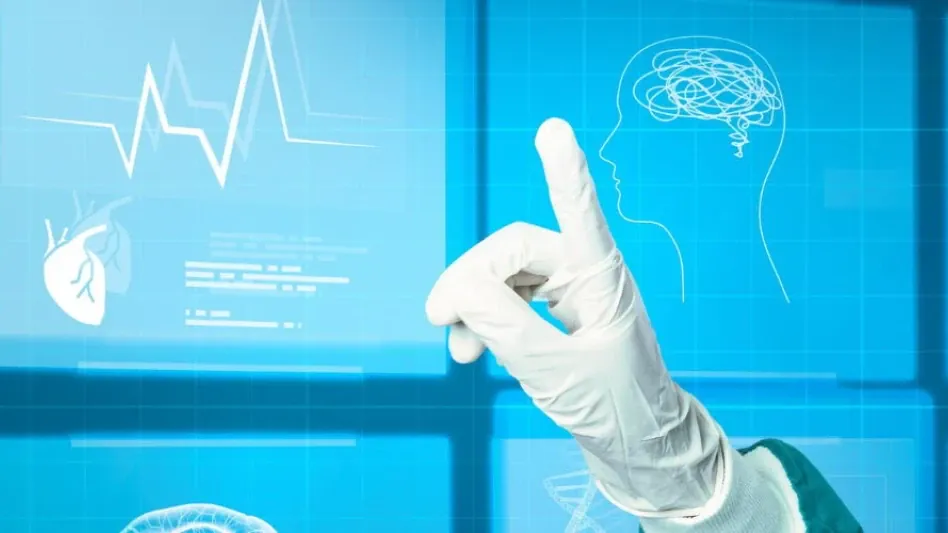The landscape of healthcare information technology (Health IT) is rapidly evolving, driven by cutting-edge advancements that are reshaping patient care and healthcare delivery. These emerging technologies promise to enhance efficiency, improve patient outcomes, and streamline operations within the healthcare sector. In this article, we delve into the key technologies currently revolutionizing Health IT and their profound implications for the industry. Real-Time Location Systems (RTLS), Adaptive AI, advanced analytics, ambient documentation, simplified healthcare delivery for rural areas, generative AI, and digital therapeutics are at the forefront of this transformation.
Real-Time Location Systems (RTLS): Enhancing Communication and Workflow
Real-Time Location Systems (RTLS) are becoming increasingly vital in healthcare settings. By integrating RTLS visibility with patient workflow software, healthcare facilities can significantly enhance communication, trust, and safety. Healthcare professionals can track patient flow metrics and ensure precise patient location information throughout their care journey, leading to optimized workflow efficiency and better patient outcomes.
RTLS technology not only simplifies the tracking process but also enables healthcare providers to quickly respond to emergencies and streamline patient management. The ability to locate patients in real-time ensures that they receive timely and appropriate care, reducing the likelihood of errors and improving overall patient experience. Moreover, RTLS can be leveraged to monitor the availability and usage of critical hospital equipment. This real-time data facilitates better resource management, ensuring that medical devices and staff are utilized effectively, ultimately enhancing the hospital’s operational efficiency.
Adaptive AI: Transforming Patient Engagement and Reducing Costs
Adaptive AI is at the forefront of transforming healthcare, particularly in payer call centers. By leveraging real-time patient engagement, Adaptive AI helps reduce costs and ensures compliance. It guides conversations based on health data, enabling tailored interactions that enhance patient satisfaction and outcomes. In payer call centers, Adaptive AI systems analyze vast amounts of data to provide real-time insights, allowing agents to handle complex queries more effectively. This results in reduced wait times and improved resolution rates, fostering a more efficient and patient-centric service environment.
Furthermore, Adaptive AI plays a crucial role in identifying patterns and predicting future healthcare needs. By anticipating patient requirements, healthcare providers can implement preventive measures and personalized treatment plans, reducing hospital admissions and associated costs. This proactive approach not only improves patient health outcomes but also contributes to the overall sustainability of healthcare systems by minimizing unnecessary expenses.
Advanced Analytics and AI-Enabled Decision Making
The role of advanced analytics and AI-enabled decision-making in healthcare cannot be overstated. These technologies handle large, complex data sets and extract actionable insights that drive informed decision-making. Machine learning algorithms and predictive modeling are essential tools for foreseeing future care needs and ensuring fairness in healthcare costs. Healthcare providers can leverage AI-driven analytics to identify trends and patterns that may not be immediately apparent through traditional analysis methods, enabling the detection of potential health issues early on, leading to timely interventions and better patient outcomes.
Moreover, AI-enabled decision-making supports administrative and clinical processes by automating routine tasks, such as patient scheduling and billing. This reduces the administrative burden on healthcare professionals, allowing them to focus more on direct patient care. AI-driven systems also enhance the accuracy of these tasks, mitigating the risk of human error and ensuring that patients receive the highest standard of care. By integrating advanced analytics into healthcare operations, providers can make data-driven decisions that enhance efficiency, improve patient health, and optimize resource allocation.
Ambient Documentation Creation: Reducing Administrative Burden
Ambient documentation creation is an emerging trend aimed at reducing the administrative burden on healthcare professionals. By automating the transcription and coding of diagnoses for procedures and billing, this technology captures clinical documentation accurately and efficiently. Healthcare providers often spend considerable time on documentation, which can detract from patient care. Ambient documentation creation, powered by AI, listens to clinical conversations and generates detailed, coded records without manual intervention. This ensures that documentation is comprehensive and error-free, enabling providers to spend more time with their patients.
Additionally, automating documentation helps reduce burnout among healthcare staff. By alleviating the administrative workload, healthcare professionals can achieve a better work-life balance, leading to improved job satisfaction and retention rates. The integration of ambient documentation technology also enhances the accuracy and timeliness of medical records, which is crucial for delivering high-quality patient care and ensuring compliance with regulatory standards. This technology represents a significant advancement in Health IT, freeing up valuable time for healthcare providers to focus on what matters most: their patients.
Simplified Healthcare Delivery for Rural Hospitals
Rural hospitals face unique challenges, necessitating simplified healthcare delivery models. The new Rural Emergency Hospitals (REH) designation allows these hospitals to operate with only outpatient and emergency services, making lightweight, cloud-based Electronic Health Record (EHR) systems essential. Simplified EHR systems are designed to be user-friendly and cost-effective, providing rural healthcare providers with the tools they need to maintain efficient operations. These systems ensure that critical patient information is accessible in real-time, facilitating better decision-making and patient care.
Moreover, cloud-based EHR systems support remote access, enabling healthcare professionals to collaborate and consult with specialists regardless of geographic limitations. This enhances the quality of care for patients in rural areas, ensuring they receive timely and appropriate medical attention. By leveraging cloud technology, rural hospitals can overcome the constraints of limited resources and deliver high-quality care in a cost-effective manner. The implementation of simplified EHR systems is a game-changer for rural healthcare, improving accessibility and ensuring that patients receive consistent and accurate medical treatment.
Generative AI in Clinical Settings
Generative AI is poised to make a significant impact in clinical settings by reducing administrative tasks and facilitating clinical documentation. This technology enables clinicians to access necessary patient data easily, ensuring they have the information required to make informed decisions. In clinical settings, generative AI can automate the creation of patient records, streamlining the documentation process and reducing the risk of errors. This allows healthcare providers to focus more on patient care rather than administrative duties.
Additionally, generative AI can assist in medical training and education, creating realistic simulations and scenarios for healthcare professionals to practice and improve their skills. By enhancing the training process, healthcare providers can deliver higher-quality care to their patients. The integration of generative AI into clinical workflows not only improves efficiency but also supports continuous learning and professional development within the healthcare sector. This technology is set to revolutionize clinical practice, enabling healthcare providers to deliver more precise, timely, and effective patient care.
Digital Therapeutics: Revolutionizing Mental Health Care
The healthcare information technology (Health IT) landscape is evolving at an unprecedented pace, driven by breakthrough advancements that are transforming patient care and healthcare delivery. These innovative technologies hold the promise of boosting operational efficiency, enhancing patient outcomes, and streamlining processes within the healthcare sector. In this discussion, we explore the pivotal technologies currently revolutionizing Health IT and their significant impact on the industry.
One key technology in this transformation is Real-Time Location Systems (RTLS), which enhance patient tracking and resource management. Adaptive AI is another game-changer, offering personalized patient care based on real-time data. Advanced analytics enable healthcare providers to make data-driven decisions, while ambient documentation simplifies medical record-keeping by automating note-taking during patient visits.
Efforts to simplify healthcare delivery in rural areas are also gaining momentum, ensuring equitable access to quality care for underserved populations. Generative AI, capable of creating new content and insights, is revolutionizing medical research and diagnostics. Lastly, digital therapeutics offer new, tech-based treatment options for patients with chronic conditions.
Together, these emergent technologies are setting the stage for a more efficient, responsive, and patient-centered healthcare system.









